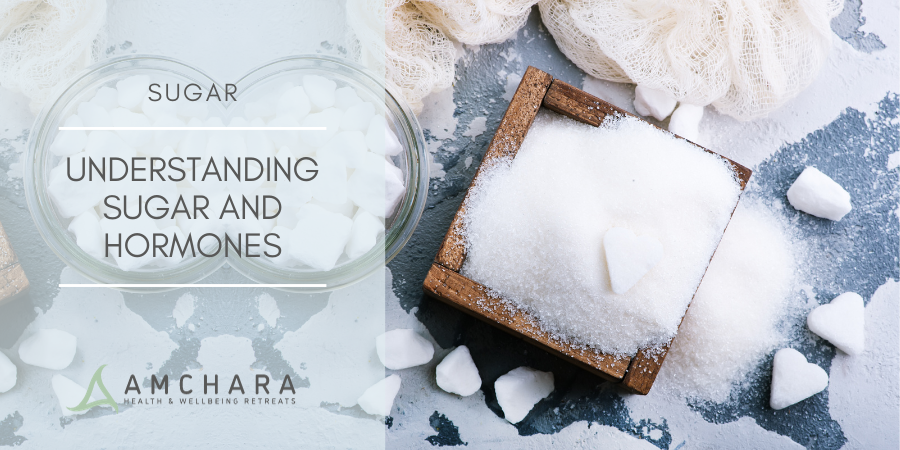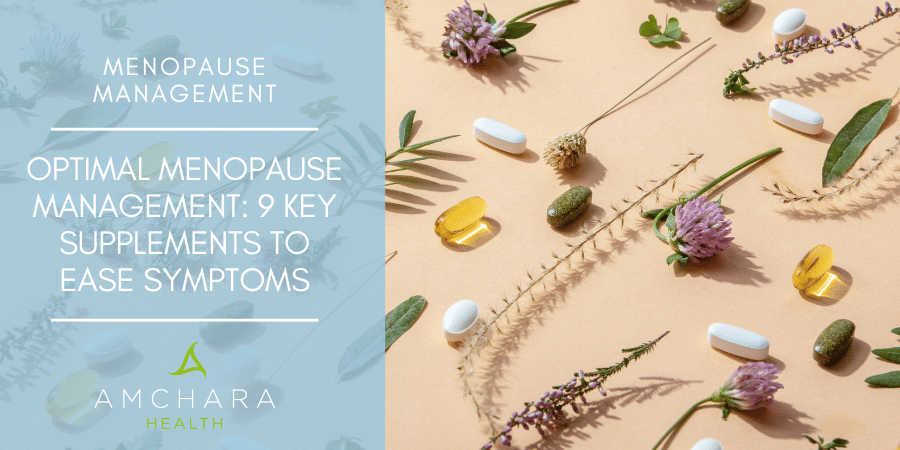Millions of women are affected by hormone changes throughout their lives, however, after 40 these fluctuations can cause very serious symptoms.
They can include:
- Fatigue & exhaustion
Fatigue – the feeling of complete exhaustion or a total lack of energy is a common problem during the menopause.
Often there seems to be no rhyme or reason for these variable bouts of fatigue but they are typically due to extremely low levels of oestrogen.
- Increased stress
The stress hormones are finely tuned to allow your body to cope with day to day stress.
Alterations in the ratio of progesterone to oestrogen can cause this intricate balancing act to go off kilter leaving your body more susceptible to increased stress.
- Weight gain
During the menopause abdominal fat usually increases – this is commonly known as ‘middle age spread’.
Medical experts believe it is due to an increase in the levels of free testosterone, brought about by reduced oestrogen production.
- Mood swings/depression
Many women experience mood swings and irritability during the transition to menopause, some more extreme than others.
These are mostly due to fluctuating ovarian hormones which can be exacerbated by stressful situations and disrupted sleep.
- Brain fog
Forgetfulness is a very real problem for some women post-menopause.
Low levels of oestrogen can be the culprit for poor sleep and mood, which are associated with a lack of clarity with thinking and memory problems.
A large proportion of these symptoms are hormone imbalances that can be addressed naturally through simple nutrition and lifestyle changes.
What are hormones?
Hormones are often considered to be primarily linked to and influencing premenstrual syndrome (PMS), pregnancy and menopause.
Many people are unaware of the much larger extent to which hormones control us.
There are over 100 identified hormones in the body and each one has a job to do.
They essentially act as a communication system, dictating how we feel, think, eat, move, metabolise, digest, sleep and function.
The endocrine system – how hormones work
Hormones are made in the endocrine glands and travel around in our blood.
Some hormones are general and act on nearly every cell, like the those produced by the thyroid gland, while others have very specific roles such as aldosterone, which acts on the kidney to retain water.
What your hormones do
- Control your heartbeat, breathing & blood pressure
- Allow you to sleep at night & wake in the morning
- Control your hunger, metabolism & growth
- Determine your masculine & feminine traits & reproductive function
- Build bone, repair skin & muscle
- Regulate fat stores
- Control your energy levels, mood & stress resilience
- Regulate brain activity – thinking, memory, focus & mood
- Control blood sugar levels & stimulate your immune system
- Lessen pain & make you feel happy
The essentials of hormone balance
- Nutrition & supplements
Refined carbohydrates (sugary foods) can upset blood sugar balance and promote insulin resistance, leading to fat storage and increased risk of diabetes.
Trans fats (found in many processed foods) can promote inflammation and oxidative stress, which can increase cortisol and suppress thyroid and sex hormones.
- Detoxification
The liver is our main detoxifying organ – if it is overloaded with toxins like alcohol, drugs, caffeine and chemicals in foods it may not be able to cope with the demand.
Oestrogen has to be metabolised by the liver and excreted in bile.
If the liver is not functioning efficiently oestrogen levels in the blood may remain relatively high which can lead to hormone imbalances.
- Stress & sleep
Prolonged stress can lead to an excess of stress hormones and constantly fluctuating blood sugar levels which disrupt the function of the adrenal glands and may result in insulin resistance, poor thyroid function, weight gain, poor digestion and sleep problems.
- Genetics & epigenetics
Your genetic make-up may predispose you to certain hormonally related conditions such as early menopause or low thyroid function; however, epigenetics can turn genes on or off affecting hormone balance. Environmental factors can influence your epigenetics.
- Medication
Prescribed medications such as HRT can have a positive effect on hormone balance but aren’t necessarily right for everyone.
Bio-identical hormones sourced from plant substances may have a gentler effect on hormone balance with fewer side effects.
Other prescribed drugs such as steroids can disrupt the normal production of hormones in the body.
Other factors that impact your hormones include:
- Environment
Toxins and chemicals in the air, food, water and household products can interfere with hormone function.
These chemicals are sometimes called endocrine disruptors and have been shown to disrupt our own hormones by mimicking oestrogen and damaging mitochondria – the energy generating powerhouses in our cells.
- Age
Whilst considerable hormonal changes occur during puberty and the childbearing years – the menopause and post-menopause seem to be the most problematic due to the fluctuating levels of oestrogen and progesterone.
This life stage can be extremely challenging for some women.
- Lifestyle
A poor diet, smoking, reliance on stimulants and junk food can lead to nutrient deficiencies and can overburden the liver.
This can affect hormone production and the liver’s ability to eliminate hormones, thus contributing to imbalances.
Lack of exercise can affect how your body responds to stress which may also affect hormone balance.
Essentials of hormone balance
The 5 key essentials
There are 5 key essentials to balanced hormones and the good news is – they can all be improved.
The first step is to get the right health advice tailored specifically for you.
It is easy to find generic advice, but one-size does not fit all and no two people are the same.
- Nutrition & supplements
High quality, nutrient dense food is an obvious place to start and our aim is to encourage our clients to work as naturally as possible with food.
People say you are what you eat but it is perhaps more correct to say you are what you are able to absorb or assimilate, which is dependent on the health of your digestive system.
Many factors affect this – particularly your choice of foods. Some people’s physiology may cope better with certain food types than others.
In general terms food that contains good quality lean protein such as chicken, fish, eggs, nuts and seeds is a good start, coupled with 5-7 portions of vegetables and 2 or 3 portions of fruit every day – preferably organic.
Healthy fats are especially important – they are found in oily fish, olives, coconuts, avocados, nuts and seeds.
For most people avoiding alcohol, caffeine, trans fats, sugar, salty and highly processed foods will improve the diet significantly.
Supplements can be useful to make up shortfalls where the body has clear deficiencies or absorption issues.
They can also provide more concentrated levels of nutrients working faster than many foods, particularly in situations where access to high quality organic foods is challenging.
- Detoxification
Over time your body builds up toxins.
This results from a combination of the food you eat, the air you breathe, the water you drink, environmental pollutants such as heavy metals, plastic and so on.
In normal circumstances, this is all dealt with effectively by your liver, the main organ for detoxification, which works hard to neutralise and eliminate all toxic substances via your colon, skin, breath and urine.
However, in a busy stressful world, your body can become overloaded by toxins which the liver may struggle to detoxify.
Our residential retreats provide support from a team of health professionals offering consultation and individualised home packages that can help you to detoxify and encourage your body to cleanse its self.
- Stress & sleep
Stress and poor sleep often go hand in hand, generally, if you’re stressed you are more likely to have difficulty sleeping.
Continual, high levels of stress result in overexposure to cortisol and other stress hormones produced by the adrenal glands. In the long term, these can have detrimental effects on your body and increase the risk of many chronic health problems.
Whilst you are sleeping your body carries out essential repairs using the main repair hormone, a steroid hormone called DHEA (dehydroepiandrosterone).
These repairs are most effective during deep restorative sleep which is also enhanced by DHEA.
Stressed people have difficulty sleeping and the subsequent lack of sleep means that DHEA cannot carry out its repairs.
This increases stress on the body and so begins a vicious cycle.
Part of our solution to help you on your journey to rebalance your hormones is to facilitate improved sleep and provide strategies to reduce your stress.
- Genetics & epigenetics
DNA genetic testing is currently one of the most innovative areas of health and is changing the way many practitioners view the patterns of health and development of disease.
Whilst we are hard-wired by our own unique genetic code, this DNA blueprint is not set in stone.
To gain more insight into our overall health picture we also need to consider the influence of epigenetics.
Epigenetics can turn genes on or off, regulating how our genes are expressed and this molecular mechanism is thought to be influenced by our environment.
Factors such as diet, lifestyle, behaviours and stress levels may significantly alter what our genes do, which means you may have more control over your health than you may have realised.
Strong seeds from the strongest plant may have the best potential start in life but if they are grown in bad soil in a hostile environment they may struggle to flower or bear fruit.
Our approach is to explore your genetic make-up and also the factors that may be influencing how your genes are expressed, in order to optimise your wellness journey.
- Medication
Many women who visit their GP are offered antidepressants, HRT or some form of hormonal birth control (if still going through menstrual cycles).
Although these medications have their place, they do come with potential side effects, and risks that are often not explained.
There are many natural alternatives that are effective and safe.
Dealing with hormone imbalance
Amchara’s approach to hormone imbalance
The five main hormones
Out of the 100 or so hormones, there are five major hormones that strongly affect how we look, feel, think and behave.
#1. Cortisol – your stress hormone
Cortisol is a major player when it comes to helping your body cope with stress.
Working closely beside it is oestrogen, which plays a key role in managing cortisol to ensure it stays within normal levels.
For a woman, ageing signals a decline in oestrogen production whilst cortisol levels increase, which means your body’s control of cortisol is less effective, leaving you feeling more easily stressed.
Long term stress places an enormous burden on the body, depleting valuable nutrient reserves.
Chronically raised cortisol levels have been linked to depressed mood symptoms and are responsible for fat being stored around the middle, leading to the ‘spare tyre’ that is often associated with middle age.
#2. Thyroid – your metabolism hormone
Your thyroid is an important gland affecting the metabolism of every cell in your body.
The hormones released from your thyroid play an important role in your blood glucose levels, body temperature, heart rate, growth and development as well as your nervous system activity.
Any deficiencies or excesses in thyroid hormones will have a significant effect on your body resulting in a large number of signs and symptoms.
Hypothyroid (low thyroid) function is more common amongst women and can lead to lethargy, fatigue, weight gain, dry skin, low mood, constipation, poor memory and concentration.
Keeping your thyroid healthy is dependent on a good supply of certain nutrients vital for producing thyroid hormones.
#3. Insulin – your blood sugar regulator
Insulin is released from your pancreas in response to raised blood sugar levels – it works in tandem with cortisol to maintain blood sugar levels at the right balance.
Cortisol ensures there is sufficient glucose in the blood, while insulin unlocks the cell membranes to push glucose into the cells as a source of energy.
Lack of exercise and a poor diet high in sugar can create a see-saw effect between these two hormones leading to sugar cravings, irritability, low mood and fatigue.
This kind of hormone imbalance can also result in insulin resistance, a major risk factor for obesity, diabetes and heart disease.
#4. Oestrogen – your main sex hormone
Oestrogen is the primary female sex hormone which functions to promote growth and reproduction.
It works closely in the body with progesterone, which helps to balance and control the activities of oestrogen.
Up to and during the menopause oestrogen levels decline as the ovaries gradually stop functioning.
Low levels of oestrogen can create an imbalance in hormones that increase the risk of osteoporosis, heart disease and uncomfortable symptoms such as hot flushes, poor sleep, low mood, vaginal dryness, bladder issues and night sweats.
#5. DHEA – your repair hormone
DHEA (dehydroepiandrosterone) is an endogenous steroid hormone and also acts as a precursor to both male and female sex hormones – it is produced by the adrenal glands and used by your body to make steroid hormones such as oestrogen, progesterone and testosterone.
It has an antagonistic influence on cortisol limiting many of its detrimental effects, thereby reducing stress, improving sleep, immune function, cardiovascular health, energy, weight, mood and mental clarity.
DHEA production is at its highest in your 20s but declines steadily with age.
Maintaining the correct balance between DHEA and cortisol is essential for optimal health.
A good diet and healthy lifestyle contribute to the amount of DHEA your body can generate in a given time period.
We don’t guess, we test!
Measuring your hormones
- Blood tests
Thyroid potentially impacts on a huge number of bodily functions.
GPs normally only test a couple of thyroid markers but this can often miss key thyroid problems.
Our thyroid panel measures every single thyroid marker in your body giving you a much more comprehensive understanding of your thyroid function.
- Dried urine test
Our dried urine panel measures all of your main sex hormones, sleep hormones and your adrenal function including the repair hormone DHEA and the stress hormone cortisol.
Not only do we measure these hormones but we measure how your body uptakes them.
- Genetics test
We are not all the same. Amchara’s approach is individual and personalised.
Understanding your DNA enables us to tailor an approach that works for you, your body and your needs.
These are all advanced tests that are not readily available on the NHS and are your fast track to better health.
Once we have your results it helps us further personalise a tailored health experience for you.
Balancing your hormones
Restoring hormonal balance is a whole body concept which involves changes to diet, lifestyle and environment.
At Amchara we believe it can be achieved in five simple steps.
With your personal health goals in mind, we aim to work together with you to tailor a nutrition and supplement programme that facilitates detoxification, stimulates energy, aids sleep, rebalances your weight and ultimately regains equilibrium in all systems in your body.
Our progressive approach to your health experience involves the latest testing technology combined with a team of dedicated health practitioners to guide and support you through this process.
Results and Recommendations
From your results, we give you a personalised solution tailored to your needs
The next steps
The journey to balancing your hormones and revitalising your health can sometimes just be a few simple steps.
We can support you in one of two ways:







